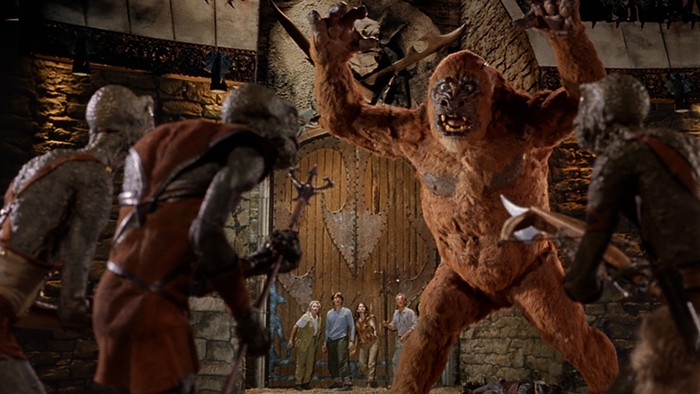The prettiest Rolling Stone was also the most messed up—which is saying something in a group that has Keith Richards in it. Brian Jones founded theworld’s former greatest rock-and-roll band in 1962 with Keef, Mick Jagger, Charlie Watts, Ian Stewart, and Dick Taylor (who later moved on to fantastic garage-/psych-rockers the Pretty Things), but his tenure was fraught with problems within and without the Stones.
Danny Garcia’s documentary Rolling Stone: Life and Death of Brian Jones surfaced around the 50th anniversary of Jones’s premature and controversial passing. It spends nearly half of its 96-minute running time diving deeply into the sordid details of this hugely talented musician’s demise—more on that later.
Jones’s story is familiar to hardcore Stones fans, but Garcia does a great job finding and questioning surviving members of the man’s inner circle and people in the Stones’ orbit during Jones’s seven years in the band, including managers, producers, publicists, and friends. Garcia also taps the knowledge of Simon Wells, author of Butterfly on a Wheel: The Great Rolling Stones Drug Bust, Chris Salewicz, who wrote Dead Gods: The 27 Club, and Graham Ride, author of Foundation Stone. Rock-world contemporaries in the Pretty Things—Taylor and Phil May—also offer their keen insights, filling in the gaps that the mainstream media may have missed.
Rolling Stone reveals the definitive struggle of Jones’s life: balancing profound musical and artistic talents with intractable character flaws. As someone quips in the film, Jones could resist anything… except temptation. For stretches, Rolling Stone becomes a depressing chronicle of Jones’s alcoholism and drug addictions and frequent drug busts, while it skims over the matter of his six illegitimate children with six different women—including three by the time he was 19. Garcia also spends time on Jones’s relationship with the actor Anita Pallenberg and the drama resulting from Keith Richards’s affair with her. Complications afflicted Jones in every facet of his life.
There’s a lot of good material about Jones’s childhood in Rolling Stone. One school teacher’s assessment—“Suffers from a dominating father and has to show off to compensate”—seems key to understanding his rebellious streak, leading to his parents throwing him out of the house at a young age. Jones’s father says on camera with a laugh: “He just wanted to party and make love to as many girls as he could. He was a naughty boy.”
While Brian Jones was a world-class hedonist, he was also a serious student of many musical styles, obsessing over jazz and blues at a young age. In 1968, Jones traveled to Morocco and became the first Western rocker to bring what became known as “world music” to the Anglo-American public with the LP Brian Jones Presents the Pipes of Pan at Joujouka. Jones was also famous for his ability to master a staggering number of instruments; that’s him playing marimba on “Under My Thumb” and Mellotron on “We Love You,” “2000 Light Years from Home,” and “She’s a Rainbow.”
Jones was the most experimentally inclined Stone with regard to narcotics and music. The trouble was, he couldn’t compete with Jagger and Richards in the songwriting department (not many could), so he became increasingly marginalized when the Stones would enter the studio.
The real meat of Rolling Stone is the forensic examination of Jones’s death, which occurred less than a month after his departure from the Rolling Stones due to his increasing unreliability. However, some observers viewed Jones’s exit as Jagger and Richards executing a power move without concern for their mate’s substance-abuse problems.
Garcia and cowriter Nick Reynolds thoroughly explore the circumstances surrounding Jones’s alleged drowning death and the aftermath of the people who were on the scene at his Cotchford Farm estate in Sussex, England, including the builder who accused Jones of owing him money, a Scotland Yard sergeant, and others. The conclusion is grim, partially involving a government plot to dismantle the Rolling Stones and to hinder the counterculture movement they represented. There’s more to Jones’s death, of course, but I won’t spoil it for non-fanatics who may not know all the details. Whatever camp you’re in, you’ll leave the theater feeling dismayed about Jones’s fate, more than five decades after the fact.
One pleasant surprise with Rolling Stone is the score by John Roome, who recorded some incredibly strange drum & bass and ambient music in the 1990s under the Witchman alias. One unpleasant non-surprise: no Rolling Stones songs appear in full in the movie, as costs for rights would be prohibitive, nor did any members grant interviews for the film. Maybe that’s understandable: Mick and Keith come off as uncaring, calculating bastards in their relationship with Brian. ![]()




















